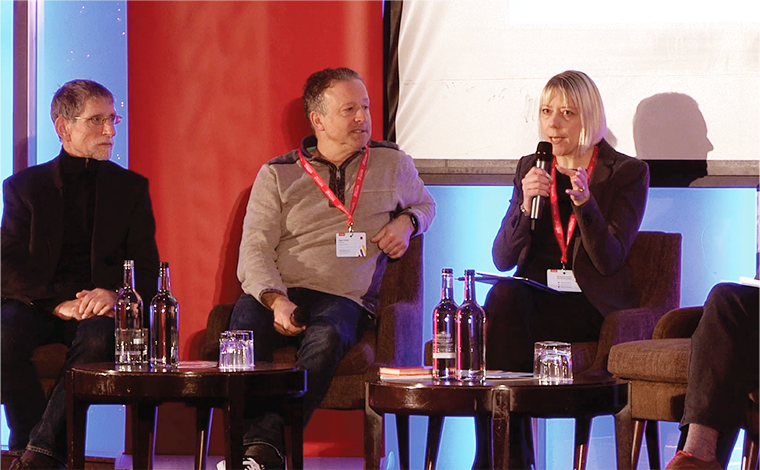Advancing all learners. ‘It can be achieved. It has been achieved.’ (Part II)
Editor’s Note:
This is the second part of a two-part series summarising the discussions that took place during our 2022 Annual Conference in November. To read Part 1, click here.
“Even without the pandemic, educators would be looking for ways to advance learners. Whether or not there was a pandemic, mastery is still mastery.”
– Dr Yeap Ban Har
The Maths — No Problem! 2022 Annual Conference, with the theme Maths Mastery in the Post-Pandemic World, took place at the Hard Rock Hotel in London in November.
At the start of the full-day event, delegates watched a video featuring teachers and pupils from accredited schools discussing their pandemic experiences.
The video beautifully summarises why the maths mastery approach and the use of Maths — No Problem! resources have been so beneficial for practitioners and pupils alike. We were particularly impressed by one pupil’s description of how working in class with his friends helps to deepen his enjoyment of maths:
“I get new ideas from my friends because if I work by myself, I would just always have the same idea, and that’s boring.”
What a brilliant endorsement of whole-class teaching — one of the fundamental principles of the mastery approach.
Transform Your Maths Assessment
Insights — our online assessment tool — gives you instant, powerful data to identify gaps and improve results.

Why are Singapore and Malaysia so far apart in the rankings?
To demonstrate that it really is possible to advance all learners, Ban Har compared how Singapore and Malaysia performed in the most recent Trends in International Mathematics and Science Study (TIMMS) tests.
TIMSS data shows that advancing all learners is possible.

IEA’s Trends in International Business Mathematics and Science Study – TIMSS 2019
The two countries are culturally similar, yet they score very differently on the tests. The data for Year 9 mathematics and science show that in Malaysia, the 10th percentile — or the weakest 10 percent of students — scored 346, versus 487 for Singapore.
A score of 500 represents the expected level of learning, and 40 points represents one year of learning. This means that the weakest 10 percent of learners in the Malaysian system are about four years below expectation by Year 9, while those in Singapore are less than a year behind.
Another set of data showed 84 percent of Year 5 students in Singapore placed in the ‘high achieving’ category, meaning that even among the struggling learners, or those in the weakest third of students, many were able to handle multi-step, complex problem solving.
“Advancing all learners is not a mystery,” says Ban Har. “It’s not a fantasy. It can be achieved. It has been achieved.”
But how is it achieved?
The pivot from memorisation to problem solving
Ban Har says in the sixties and seventies, Singapore and Malaysia were at about the same place on the international rankings. Back then, most education systems in south east Asia focused on three things:
- Rote memorisation
- Procedures without understanding
- Tedious computation
“The teachers would tell students, ‘you don’t really need to know the reason why, just do this and practise twenty more sums and you will be alright,’” says Ban Har. Unfortunately, this sabotaged the learning for the students.
The turning point for Singapore came in 1980 when the government decided to introduce a problem-solving curriculum — inspired by the findings of the Cockroft Report — that tried to systematically dismantle the old way of teaching. The new curriculum was rolled out in 1990.
Ban Har says focusing on lesson structure was a game changer for Singapore. The lesson structure should include five or six core elements:
- Play or exploration
- Structured discussion
- Practise (variation not repetition)
- Journal writing
- Reading (other journals, textbooks, etc.)
- Reflection
They are based on a set of learning theories from Jerome Bruner’s concrete-pictorial-abstract (CPA) approach to Lev Vygotsky’s use of collaboration to Zoltan Dienes and the importance of the play stage.
“We know that lesson structure makes a big difference to advancing all students,” he says.
Messages on returning to normal are ‘misleading’
Tim Oates, who was awarded the CBE in 2015 for services to education, began his presentation by giving a shout out to Maths — No Problem! for the “huge success” in terms of the influence it has had on maths education in England.

Tim Oates
Here are some of the highlights from his presentation:
- The problem with Covid is there has never been a policy challenge of this kind before anywhere. Covid affected everyone, but in different ways, and it’s unclear where the affected children are or whether they’re high ability or low ability
- The policy challenge is combined with the rhetoric of going back to normal, but the kids who’ve been affected by the pandemic “aren’t normal”
- The bad news is that the effects of the pandemic will be felt in the education system for a long time. “Not until we reach the late 2030s do we have the possibility of saying we’re returning to a normal state”
- The good news is the solutions to responding to the Covid impact “needn’t be expensive, nor do they need to be restrictive.” In fact, the results are “consistent with what we know are the highest quality pedagogy and didactics that we were driving toward before the pandemic and which are promoted by Maths — No Problem!”
- He gave the example of a child who is three years old, born just before Pandemic, living with a single parent in a one-bedroom flat on the third floor. This child “will likely have depressed literacy, depressed number sense, and depressed executive function.” Also, the child �“will likely have depressed social skills and be more likely to suffer separation anxiety”
- “What’s most important about Maths — No Problem! and the idea that everyone can succeed in mathematics is that everyone needs to be attended to. And if we stop classifying, and actually try to have the most inclusive form of education that we can, we can address these challenges.”
- He cited government research that showed 3 months of learning loss in primary maths and that the disadvantaged gap stopped closing. “That’s really serious because that’s the one thing we really need to focus on”
- As part of the solution, “we need to vary the presentation of ideas and we need to encourage varied practice, which is right at the heart of the model in Maths — No Problem!”
- Also part of the solution is monitoring learning, immediate action on misconceptions and variation in practice, all things that are at the heart of Maths — No Problem! “Just go to the principles that are at the heart of that, and really drive them through your practice”
Watch this video clip of Tim discussing the solutions to the pandemic effects on education
Why do teachers love Insights?
Asked about the best uses of Insights, Rosie Ross, Assistant Headteacher and Maths Lead at St. Bridget’s CofE Primary in Wirral, England said she and her colleagues use the online assessment tool from Maths — No Problem! to highlight where there are gaps across her school. “For us, it’s brilliant for being forensic about the actual issues that children are having.”

(L-R) Tim Oates, Roger Hitchin, Rosie Ross
She also praised the capabilities of Insights to improve intervention, to highlight trends and to tell teachers where they need to go back to, even which textbook and lesson. “It just makes us think about what we need to pick up running as golden threads through our lessons.”
Roger Hitchin, Head of Years 5 and 6 and Maths Lead at Wellington Prep School in Somerset, echoed Rosie’s remarks. He said Insights is great for the school’s intervention groups and that it’s very granular. “You can dig right down for an individual child, but you can also see patterns as well,” he said.
He also highlighted the filtration abilities of the tool, which allows for analysis of trends across year groups, and how it makes his reports more effective because it gives data not only on content domain but also the cognitive domain.
“I’m confident with any parent that wants to have a discussion — or occasionally a challenge — you can pull up that information and it’s there.”
